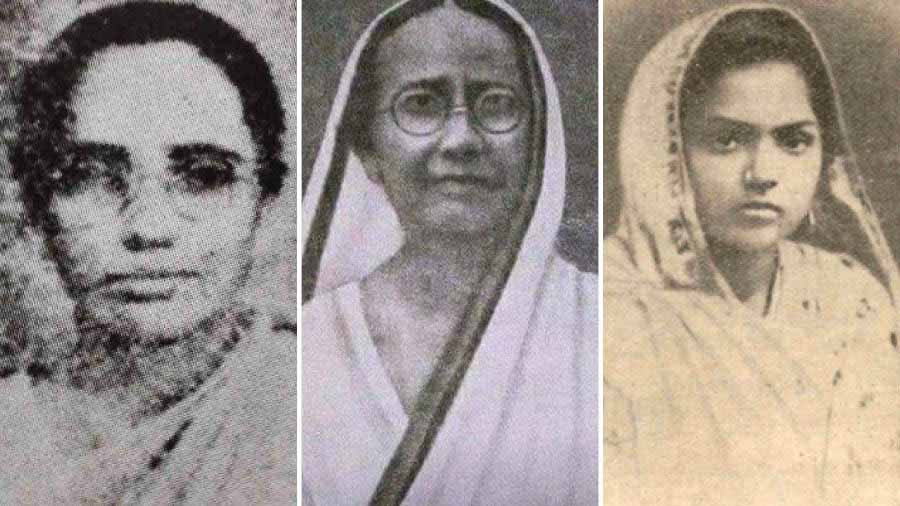NEW DELHI: It is absence of economic opportunities arising out of a distorted democracy that made lives of women miserable in West Bengal.
Development, wrote Amartya Sen, requires the removal of major sources of unfreedom. And elements of unfreedom, he went on, included poverty as well as tyranny, poor economic opportunities as well as systematic social deprivation, neglect of public facilities as well as intolerance or over activity of repressive state. This was in his well-known book, “Development as Freedom”, published one year after he received his Nobel. He was narrating the conditions in general with no particular reference to his native West Bengal, nor has he time or energy to dwell on the conditions of the state amidst his busy schedule, leaving others to wonder the stark reality of unfreedom flowing out of the Mamataland proving how prophetic the great economist was in 1999.
Amartya Sen has focused much of his empirical and normative work on understanding the condition of girls and women in development as well as their crucial role as agents in that process taking a close look at developing economies like India. Put simply, he drew attention to sex bias or boy attention even within a poor family. When food is insufficient the hungry girl and the lady of the house more often than not go without food. In sum the unfreedom that Sen pointed out is harshest in case of women in a poverty stuck geography. What is curious is how the lone female head of a province in India, Mamata Banerjee, has in course of her rule exacerbated the elements of unfreedom on women in particular in her jurisdiction.
When women are left to fend for ageing parents and young children, with their spouses seeking livelihood in some distant place from home, they face harsher unfreedom than they would have had their men been around to support. In West Bengal, with hardly any regular available work, able men go to distant places in other parts of India to earn money. Their women struggle to manage the home where they are often enough subject to exploitation—ranging from property grab, physical harm and as has become well known in West Bengal’s Sandeshkhali to go to the local political muscles and “cook” for their appetite. It is for the great economists like Sen and his students to calculate and tell us if the dole in the form a monthly paltry state grant compensates the “unfreedom” they suffer. Economists observe events and come out with theory after some lag—Sandeshkhali incidents need to remain under observation for some years before economists would educate us with a path breaking award winning theory.
West Bengal under Mamata Banerjee is a rent seeking economy, where those in some position seek to gain wealth without any reciprocal contribution of productivity; to be more precise even at the cost of productivity. A common enough practice in the state, as could be seen, had been selling jobs, wherever they could, to those who could pay—be these jobs of teachers, clerks in municipalities or any other kind of temporary casual assignments. When jobs need to be bought by disposing family assets, the first priority in a patriarchal society is to buy the job for the boy in the house. The system that a female Chief Minister allowed to thrive creates a stark “sex bias” that Amartya Sen had famously pointed out and thus became well known in development economics. Hopefully, a few years down the line there would be erudite research papers on the West Bengal scene.
The second important element in the politics of the state is use of muscle power. This comes from people who did not go to other distant states to work but opted to spend time in local clubs and tea shops. To meet their cost of living they sought opportunities—in say broking a deal between a job buyer and someone in authority who could help, acting as middlemen in property deals and other deals like receiving various government grants, admissions to education institutes etc. It has even been seen that they had the option of creating multiple cards as beneficiaries and pocket the state doles for themselves. In return they had to attend meetings of ruling political party, help the leaders to win elections to all posts by using “tricks” which made voters cast votes for the favoured leaders and also to ensure that no other competition dare to enter the space. The “economic” activity, as mentioned briefly, is again biased in favour of boys, inherently against girls. Girls are not expected to use muscles.
Sen pointed out that poverty is deprivation of basic capabilities as well. In a low income poor family in West Bengal while everybody in the family faces poverty, the capacity deprivation is more in case of able-bodied females than males. Women are used as a line of defence against law enforcing agencies not under the control of the state, but these are of recent origin when courts are seen to take cognisance of many deviations of laws. In any case they get compensated by a dole called “Lakshmi’s bhandar” and such actions against court mandated forces are “payback” times. Specified roles for genders in a political system developed in West Bengal is against women, though not yet studied by development economists like Sen and his students.
Sen had mentioned that in many societies women are prohibited to work outside family. While he suggested that this arises out of age-old culture but if one cares to look at women of Sandeshkhali and other places in West Bengal, women perform backbreaking work at home to maintain the aged and children, often enough working in relatively affluent houses as maids. It is absence of economic opportunities arising out of a distorted democracy that made lives of women miserable in West Bengal, the only state having a woman Chief Minister. Unfreedom stares at any girl born in the state.
Sugato Hazra is an author and political analyst.

